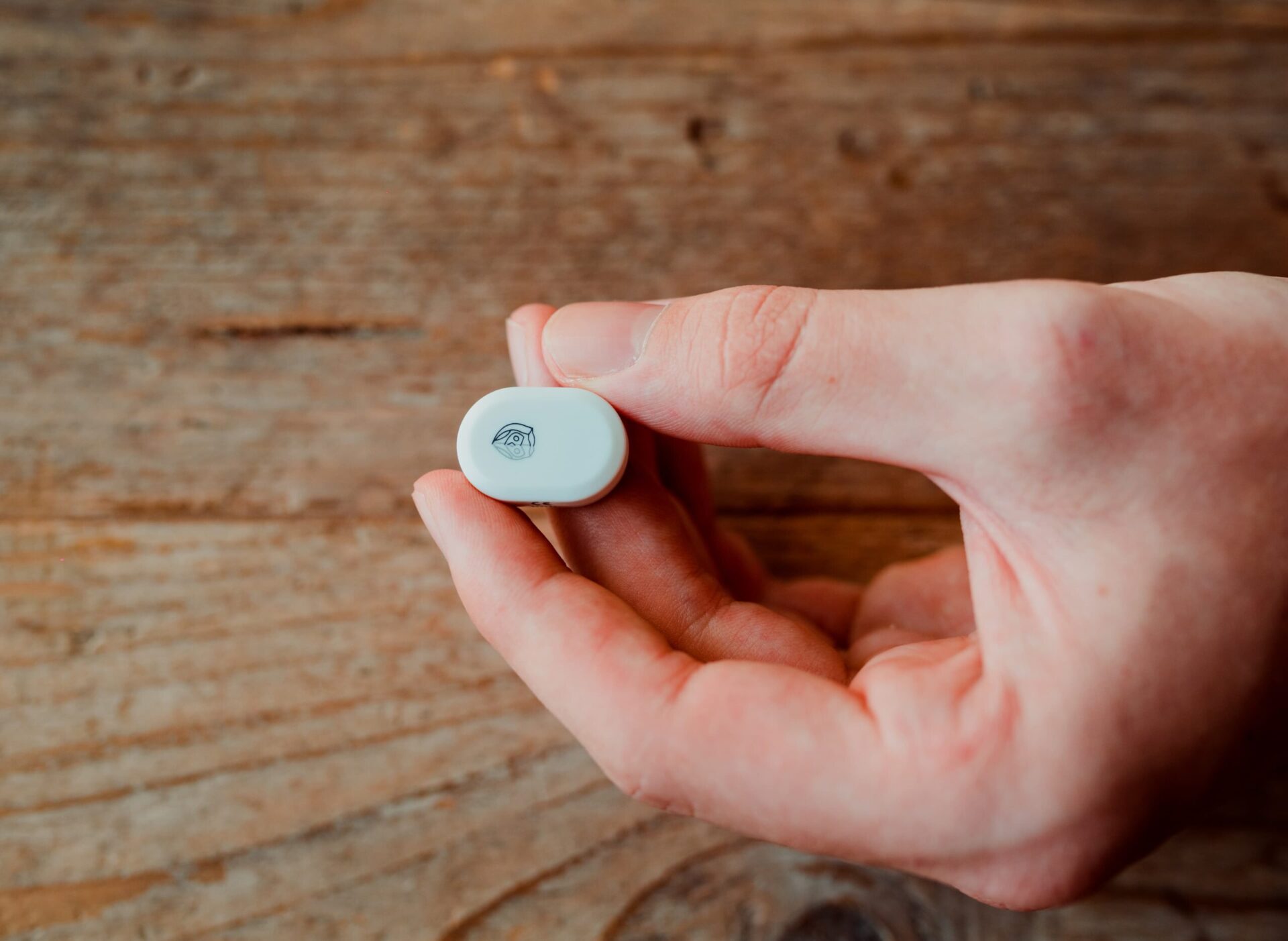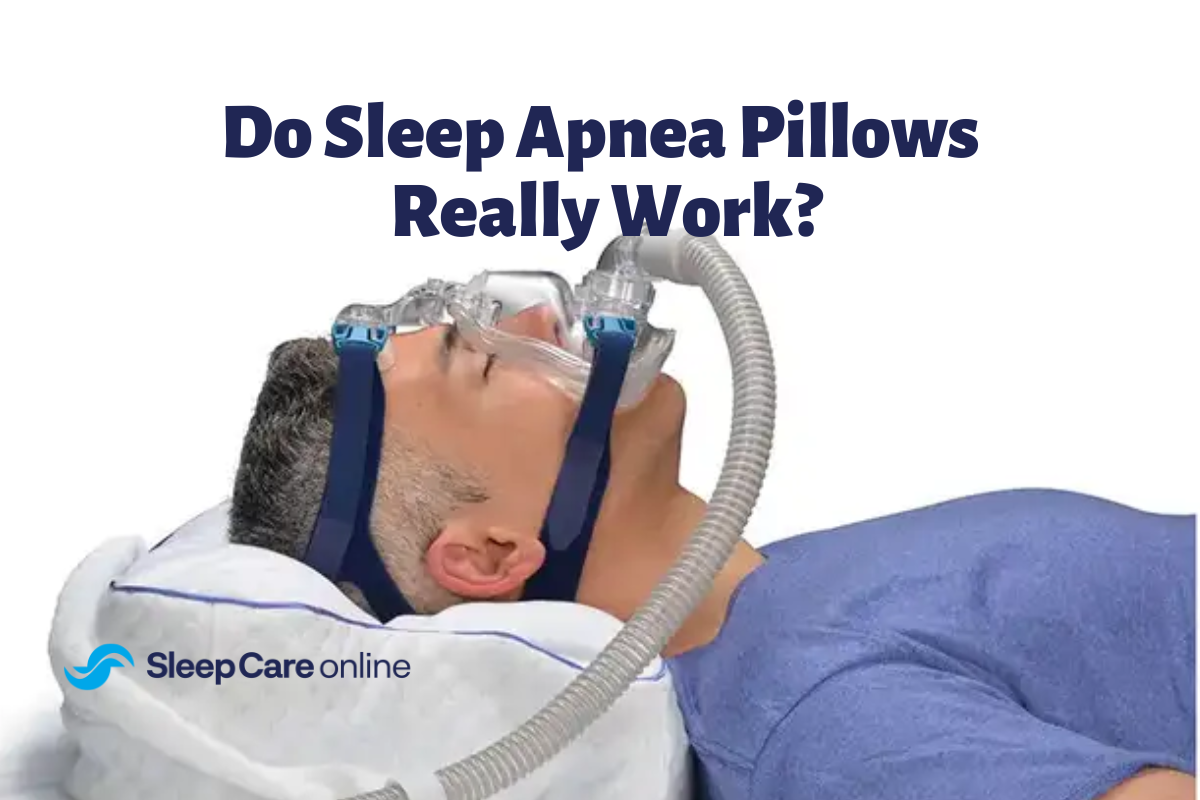
Did you know a home sleep apnea test may actually save your life? Sleep apnea can stop your breathing for up to 10 seconds at a time and up to 30 times an hour while you sleep at night.1 Now hold your breath for 10 seconds and think about how long that actually is!
According to results published in the peer-reviewed journal, SLEEP, researchers at the University of Wisconsin-Madison found that people with sleep apnea have more than three times the risk of death from cardiac arrest.2
The research showed that individuals 60 years or older who experience 20 or more sleep apnea episodes, or apneas, per hour have an increased risk for a cardiac event. This elevated risk was due to low oxygen levels. If you have sleep apnea, you may already have low blood oxygen levels due to air not reaching your lungs. When your oxygen saturation goes below 78%, the risk of sudden cardiac death goes up by 80%.3
How Common is Death from Sleep Apnea?
Although a person with sleep apnea does not necessarily die while sleeping, the risk of death increases significantly if sleep apnea is untreated. People with sleep apnea do not usually die in their sleep because when the brain senses that it doesn’t have enough oxygen, it alerts the body to wake up. Upon waking, the airways open and breathing resumes. However, the probability of death is greater in people who have sleep apnea. Sleep apnea is known to disrupt normal heart and lung function, raises blood pressure, and causes imbalances in the brain and body chemistry.
It is estimated that approximately 38,000 people lose their lives to heart disease, with sleep apnea as a complicating factor.4 People with sleep apnea experience trouble breathing or actually stop breathing (called an apnea event) for a brief time while asleep. This treatable sleep disorder is often undiagnosed. According to the American Heart Association, 1 in 5 people has a degree of sleep apnea. It’s more common in men than in women and children.
Symptoms of Sleep Apnea
How do you know if you have sleep apnea? Some of the most common symptoms of sleep apnea include:
- Excessive and loud snoring
- Waking up in the middle of the night choking or gasping
- A persistent dry or sore throat in the morning
- Unexplained headaches upon waking
- Restless sleep
- Fatigue during the day
Risk factors
What exactly gave you sleep apnea in the first place? Risk factors can range from lifestyle choices to existing medical conditions, to genetics. Most of the common reasons why over 22 million Americans2 have sleep apnea include:
- Excessive weight
- Alcohol use, especially near bedtime
- Smoking
- A narrowed airway
- Chronic nasal congestion often due to allergies
- Asthma
- A family history of sleep apnea
While the symptoms of sleep apnea may seem innocuous, the impact of untreated sleep apnea can be potentially deadly. If the symptoms above seem familiar, it is time to be tested for sleep apnea. The good news is that with Sleep Care online, the whole sleep apnea testing and diagnosis process—from meeting with your physician to taking a sleep test and getting prescribed treatment—can all be completed from the comfort of your own home.
Can Sleep Apnea Cause Death?
If sleep apnea is untreated it can cause serious health problems:
- Heart failure
- Diabetes
- Cardiac Arrest
- Coronary heart disease
- Stroke
- Mini stroke or Transient ischemic attacks
What Happens If You Do Not Treat Sleep Apnea?
People with untreated sleep apnea may experience these consequences:
- Increased risk of heart attacks.
- Three times greater chance of stroke.
- Increased risk of premature death
How To Prevent Sleep Apnea
Some preventive measures help you to minimize sleep apnea:
- Sleep on your side
- Lose weight
- Stop smoking and drinking alcohol
- Do not take sedatives other than those prescribed by a physician
- Avoid caffeine
When Is The Time To See A Doctor?
If you are having any of the following problems then immediately go to the doctor and do a thorough check-up.
- Snoring
- Sleepiness during daytime
- Fatigue
- Cannot concentrate
- Headaches in the morning
- Difficulty staying asleep
- Falling asleep while watching TV, driving, or doing some work
How Do I Test for Sleep Apnea?
Sleep Care Online offers an affordable and convenient sleep apnea test that can be taken in the comfort of your own home. Here’s how it works:
- With the Complete Care Package, schedule a 10-minute telehealth visit with a healthcare provider to discuss your symptoms, upcoming sleep study, test results, and treatment options.
- A multi-night, disposable home sleep apnea test is mailed to your home to be completed at your convenience.
- A physician analyzes the sleep data and provides a prescription if needed.
- Schedule an optional follow-up appointment (additional fee applies).
- We connect you to sleep experts who can offer customized sleep therapy options, assistance in equipment purchase, and initial set-up.
If you are interested in the Complete Care Package but still have questions, contact our knowledgeable customer care team today! Email us at contact@sleepcareonline.com or call us at 866-465-7748 today!
References:
- John Hopkins Medicine. The dangers of uncontrolled sleep apnea. Accessed September 2019.
- American Sleep Apnea Association. Sleep apnea information for clinicians. Accessed September 2019.
- National Sleep Foundation. Sleep-related breathing disorders. Accessed September 2019.
- American Sleep Apnea Association. Yes, you can die from sleep apnea. Accessed February 2021.




